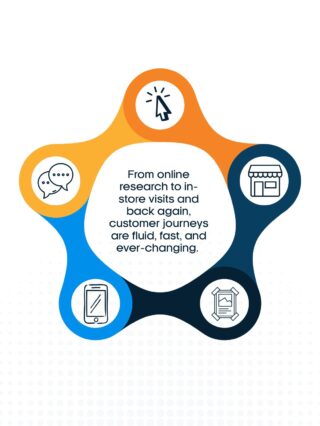What is Google’s latest news?
On Thursday, June 24, 2021, Google announced (via their blog) that they will delay the deprecation of third-party cookie support on their Chrome browser from 2022 to late 2023, so publishers, advertisers, and developers have time to build and test allowable alternatives.
One part of Google’s rationale for pushing back its plan is that moving too fast will encourage tracking companies to use more underhanded tracking methods than cookies. One such method is fingerprinting, which uses trackers to gather browser configuration details, such as the version you’re using and which fonts you’ve downloaded. With enough of those details, trackers can identify you accurately.
The second reason Google must move thoughtfully is because it will face regulatory scrutiny regardless of its decision. Removing cookies could undercut independent publishers and ad tech partners, resulting in privacy challenges stemming from third-party cookie tracking and antitrust lawsuits.
The new timeline for third-party cookie deprecation starts with a first stage in late 2022, when Chrome will test Privacy Sandbox features and monitor for industry adoption. That stage is expected to last nine months. That is also when the UK Competition and Markets Authority (CMA, the British antitrust agency) will evaluate Chrome’s cookie changes.
If the Privacy Sandbox features are adopted by publishers and developers, and Google gets the go-ahead from the CMA, then Chrome will move to Stage 2: a three-month period when the browser will phase out third-party cookies.
Why is Google making this announcement now?
Google communicated testing would begin in Q2 of 2021. To date, however, there has been little testing happening on Google’s most viable product–FLoC (Federated Learning of Cohorts)–so this, coupled with the requirement to get CMA’s blessing on an alternative, is giving the whole industry more time to adopt FLoC, test them for paid media targeting, and ensure compliance with privacy legislation and regulators.
It’s anyone’s guess as to when advertisers will get their hands on those cohorts now that Google is set to pause the trial. This move suggests Google doesn’t have the answers to the reams of questions marketers have about cohorts–from their efficacy to whether they’re acceptable from a privacy regulation perspective.
Without the necessary scale, seeing the true effectiveness of FLoCs was always going to be a challenge. In the United States, for example, some executives said the FLoC IDs covered as little as 1% of the population, whereas others put that figure at 5%. Even if marketers were able to target and buy ads using those IDs, they would not be able to learn much because the results won’t be statistically significant.
What’s Butler/Till’s take?
In short, a delay was inevitable, and we welcome the extension.
Few advertisers have been able to test any of the alternatives because there has been nothing to test. Why not? Because most of the alternatives are not ready to be tested, and the bit that can be are so minimal that marketers would not learn enough. Not to mention some of them weren’t compatible with privacy laws across the European Union. In addition, new proposals are still being added in the process as well, as the smartest minds in the industry try to find positive-sum solutions.
Unlike its largest browser competitors, Safari and Firefox–who have both been blocking third-party cookies since 2017 and 2018 respectively–Google must account for “performance” for advertisers and publishers and cannot just focus on privacy, too.
The extended timeline allows the industry to more thoroughly consider Google’s approaches to addressable advertising. There are various questions about those proposed solutions, concerning feasibility and privacy, that still need to be answered.
We will continue to stay close with Google on their timing for FLoC testing, but we will also press on with evaluating other identity solutions.





